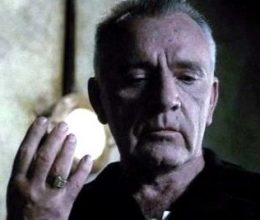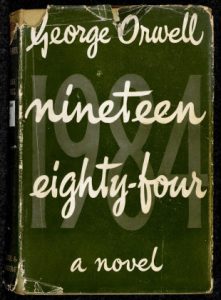2,306 words
Did the international crises of 1947 and 1948 leave their mark on the writing of Nineteen Eighty-Four? I’ve spent a lot of time on this question, and so far as I can tell, the answer is – yes; but only obliquely. And George Orwell may not even have been conscious of the fact.












